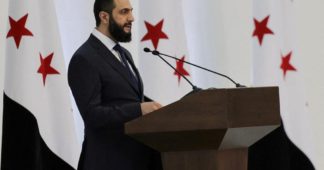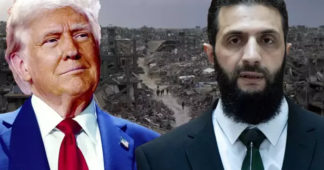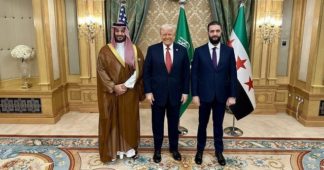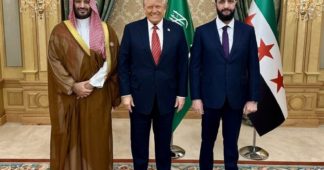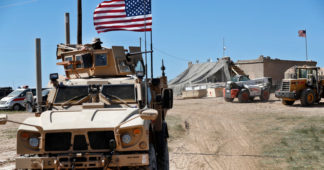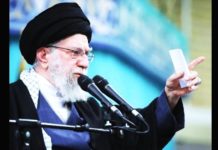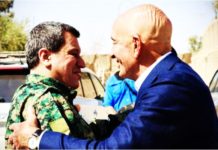By: FRANCE 24
May 29, 2005
On a visit to Damascus Thursday, newly appointed US envoy to Syria Thomas Barrack inked a $7 billion energy deal between Syria and a Qatari-US-Turkish consortium. Barrack also called for an Israel-Syria non-aggression pact and raised the flag over the US ambassador’s residence in a sign of warming ties between the two countries.
Syria signed a $7 billion energy deal on Thursday with a consortium of Qatari, Turkish and US companies as it seeks to revive the war-torn country’s crippled power sector.
The agreement was sealed at the presidential palace in Damascus in the presence of interim leader Ahmed al-Sharaa and US ambassador Thomas Barrack. It aims to generate 5,000 megawatts.
Syrian Energy Minister Mohammad al-Bashir called it a “historic moment” and a “turning point” for the country’s shattered infrastructure.
The consortium is led by Qatar‘s UCC Concession Investments and includes Turkey‘s Kalyon GES Enerji Yatirimlari and Cengiz Enerji, along with Power International USA.
Syria’s 14-year civil war wrecked its power grid, leaving people with up to 20 hours of daily blackouts.
The project includes four gas-powered plants in central and eastern Syria and a 1,000-megawatt solar farm in the south. Bashir said the plants would use US and European technology.
Barrack said US President Donald Trump had lifted sanctions on Syria unconditionally and pledged ongoing support.
Trump, he said, offered Syria his “unceasing commitment” to turn borders “into a tapestry of commerce and cooperation”.
UCC chief executive Ramez al-Khayyat said the deal would create more than 50,000 direct and 250,000 indirect jobs.
Last week, Turkish Energy Minister Alparslan Bayraktar said his country would begin supplying Syria with two billion cubic metres of gas a year – enough to generate 1,300 megawatts.
Syria has ramped up efforts to lure investment after the United States and European Union said they would lift sanctions.
In March, Qatar began funding gas supplies to Syria via Jordan to help ease power shortages.
US suggests Syria-Israel non-aggression deal
While in Damascus, Barrack, called for a non-aggression agreement between Syria and Israel in remarks to Saudi channel Al Arabiya on Thursday.
Syria and Israel have technically been at war since 1948, with Israel taking the Golan Heights from Syria in 1967.
Since the ouster in December of former president Bashar al-Assad, Israel has carried out hundreds of air strikes and multiple incursions into Syria.
Barrack said the conflict between the two countries was a “solvable problem”.
To him, Syria and Israel could “start with just a non-aggression agreement, talk about boundaries and borders” to build a new relationship with its neighbour.
On May 8, Sharaa said in France that Syria was holding “indirect talks through mediators” with Israel to “try to contain the situation so it does not reach the point where it escapes the control of both sides”.
US ambassador’s residence inaugurated
Barrack, who is also ambassador to Turkey, inaugurated the US ambassador’s residence in the Syrian capital with Syrian Foreign Minister Assaad al-Shaibani, state media outlet SANA reported.
AFP photographers saw the US flag raised at the ambassador’s residence, just a few hundred metres (yards) from the US embassy in the Abu Rummaneh neighbourhood, under tight security.
“Tom understands there is great potential in working with Syria to stop Radicalism, improve Relations, and secure Peace in the Middle East,” Trump said, according to a post on the State Department’s X.
The US embassy in Syria was closed after Assad’s repression of a peaceful uprising that began in 2011, which degenerated into civil war.
Washington has not formally reopened its embassy in Damascus, but Barrack’s visit and the raising of the flag were a significant signal of warming relations between the two countries. (FRANCE 24 with AFP and AP)
Read also: Inside Trump’s New Gaza “Ceasefire” Proposal | Defend Democracy
We remind our readers that publication of articles on our site does not mean that we agree with what is written. Our policy is to publish anything which we consider of interest, so as to assist our readers in forming their opinions. Sometimes we even publish articles with which we totally disagree, since we believe it is important for our readers to be informed on as wide a spectrum of views as possible.
